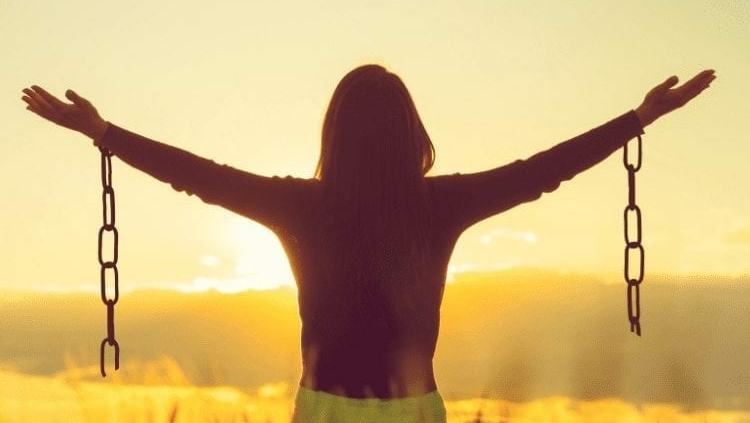Forgive Yourself Too
Today, as we gather on this sacred day of Yom Kippur, we come together to reflect on the profound theme of forgiveness. It is a day when we focus on seeking forgiveness from God and from those we may have wronged. We examine our actions and ask for pardon with a sense of urgency in our hearts. Yet, there is one aspect of forgiveness that often remains elusive, and that is the act of forgiving ourselves. This is the type of forgiveness with which I struggle the most.
In our tradition, we are no strangers to acknowledging our wrongdoings. From the earliest days of our faith, we have been guided by a set of moral principles and teachings that remind us of what we should not have done. We dedicate these 25 hours of Yom Kippur to introspection, where we meticulously examine our missteps and errors. It’s almost as if we are experts in identifying our own flaws and shortcomings.
But amid all this reflection and repentance, there lies a crucial foundation within our tradition, one that prevents us from sinking into a bottomless pit of self-loathing. That foundation is the concept of forgiveness.
Today, I want to address a struggle that many of us face—the difficulty of forgiving ourselves. We often find it easier to point out our own faults and to engage in self-criticism. We replay our mistakes in our minds, tormenting ourselves with feelings of regret and self-loathing.
Judaism, however, offers us a more constructive alternative to self-destructive tendencies. These High Holidays provide us with a roadmap for recognizing our mistakes, resolving to improve ourselves, and requesting forgiveness. As human beings, we are inherently imperfect. We stumble, fall, and make mistakes—it’s an integral part of our journey towards becoming better individuals.
We must not forget that we are deserving of forgiveness’s embrace. Our tradition emphasizes not only seeking forgiveness from God but also from one another. Forgiving others and accepting their forgiveness is an affirmation of our equality. It acknowledges our shared humanity, our shared capacity for error, and our shared potential for growth.
Leviticus 19:18 instructs us to “Love your neighbor as yourself.” This commandment underscores the importance of self-love. To truly love others, we must first learn to forgive ourselves for being imperfect. It’s a reminder that self-love is not only permissible but imperative.
Often, when we face challenges or fears, our past mistakes flood our minds. We wrestle with our imperfect selves, much like Jacob wrestled with the angel. Jacob, too, was a complex figure with a blend of imperfections and divine qualities. In the end, he forgave himself and his failings, accepting himself as both flawed and inspired. It was only then that he could reengage with the world with courage, hope, and integrity.
Wrestling with our mistakes is the path to personal growth. We must recognize that we are not born perfect, all-wise, all-skilled, and all-loving. Accepting our humanity and forgiving ourselves for our mistakes is the key to growth.
We often spend more time berating ourselves for our errors than anyone else ever would. We fill our minds with negative thoughts, convincing ourselves that we are not smart enough, strong enough, or good enough. The loudest voice in our heads is often self-destructive.
But it’s time to let go of guilt, shame, and regret. It’s time to release the “should haves” and “maybes” and focus on what we will do and achieve. We are more than the sum of our mistakes. As Bryan Stevenson aptly put it, “Each of us is more than the worst thing we have ever done.”
In a world increasingly dominated by cancel culture, where our mistakes are magnified and used to define us, we must remember that we are better than any failure or mistake. Our mistakes are not our identities; they are opportunities to learn and grow.
So, how do we embark on the journey of self-forgiveness? It starts with admission and recognition of our lapses. Speak your feelings aloud, share your burdens with someone you trust, and give your mind a rest from incessant self-criticism.
Adopt a mantra, a positive phrase that reminds you that mistakes do not define you. Be proactive in making choices that disprove your worst thoughts about yourself. Believe in your capacity to become the best version of yourself.
Ultimately, healing and self-forgiveness will not only benefit you but also enhance your capacity to connect with others. When we let go of self-loathing, we can embrace humility, acknowledging our fallibility and opening ourselves to better relationships.
Life is a journey, and along the way, we will make mistakes and falter. But remember, to live life fully is to accept yourself. To accept yourself is to forgive yourself for being human. There is always room for improvement and growth, but acceptance means learning from mistakes and returning stronger than before.
In the end, self-forgiveness is not just a gift we give ourselves, but it’s also a gift we give to the world. When we forgive ourselves, we can love ourselves, and that love spills over, making us more capable of loving others.
So, as we strive towards forgiveness during these High Holidays, don’t forget to forgive yourself. Heal your wounds, embrace your vulnerabilities, and believe in your ability to become the best version of yourself. For in forgiveness, we find not only redemption but also the capacity to love and be loved.
May this Yom Kippur be a day of self-forgiveness, healing, and renewal for each of us. And may we emerge from it with the strength, resolve, and optimism to make the most of each God-given day.
Amen.
Rabbi Evan J. Krame






 Evan J. Krame was ordained as a rabbi by the
Evan J. Krame was ordained as a rabbi by the